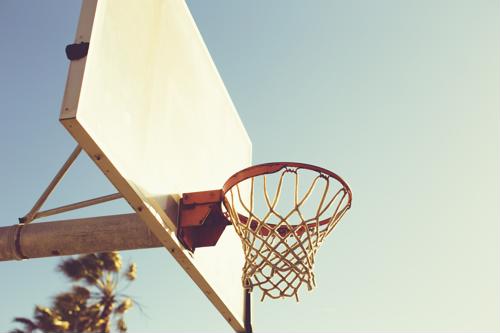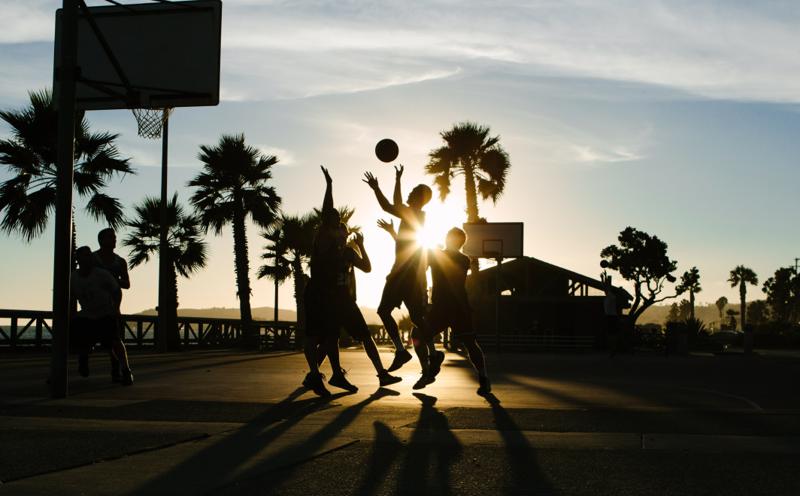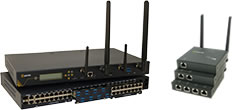
Wearables on the hardwood: NBA to embrace this new technology?
By Max BurkhalterMay 19, 2017
In December, the National Basketball Association and the National Basketball Players Association ratified a new collective bargaining agreement, ESPN reported. The document, which contains 42 separate articles and spans more than 400 pages, includes detailed regulations pertaining to everything from salary negotiation tactics to travel expense tracking. However, near the end of the portion on player health and wellness, there lies a small section on an unlikely topic: wearables.
The web-enabled devices have gained immense popularity among business owners and consumers. Last year, retailers sold more than 274 million of them, according to research from Gartner. Analysts for the professional services firm expect an additional 322 million units to fly off the shelves in 2017. Wearables have also gained traction in the sports world, as athletes in almost every sport are turning to these connected fixtures in an attempt to collect biometric data that might help them perform better. American professional sports organizations like Major League Baseball and the National Football League have embraced wearables, equipping players and venues with advanced technology capable of collecting high-level human analytics, Sports Illustrated reported.
The NBA has not been so accepting. The league bans wearable usage and regularly pinpoints and ensnares offenders. Last year, for instance, NBA officials cited Milwaukee Bucks guard Matthew Dellavedova for wearing a WHOOP biometric tracker, which resembles the nondescript wrist strap many players wear. That said, the latest CBA indicates that the organization might soon change its tune and go the way of MLB and the NFL. The agreement calls for the establishment of a "wearables committee" tasked with evaluating potential on-court use cases and approving practice deployments. Should this group succeed in developing best practices for ethical and technically sound wearable usage, data-hungry players like Dellavedova may soon gain clearance for in-game operation.
Driving toward innovation
The NBA's reluctance to adopt wearables confounds many familiar with the modern game. Teams have, in recent years, eschewed the eye test for data-backed strategy, Grantland reported. Instead of deploying defensive and offensive schemes that appear effective, coaches and players are crunching hard data to measure actual impact. Squads now employ statisticians who leverage basic per-game and per-possession figures, as well as identifiable on-court variables, to develop blueprints for optimal performance.
The Houston Rockets are perhaps most associated with this novel approach. The team employs a sophisticated offensive plan that emphasizes three-point shooting and fastbreak opportunities, a style of play ridiculed among traditionalists who favor slower more pragmatic approaches. Even so, the numbers do not lie. Houston netted the the fifth best offensive rating of all time during the 2016-2017 regular season and boasted four of the 14 top three-point shooters in the league, according to SB Nation. Additionally, the team's superstar, point guard James Harden, became the first Rockets player to record more than 2,000 career points and assists - productivity many attribute to the Head Coach Mike D'Antoni's data-driven direction.

The push and the pull
Many teams are attempting to replicate Houston's offensive attack. This has resulted in a league-wide embrace of advanced statistical measures such as player efficiency rating and win shares. The NBA's ban on wearables seems odd when juxtaposed against this state of affairs. However, those opposed to these devices do offer cogent arguments. For instance, NBPA Executive Director Michelle Roberts asserts that team executives could use biometric readings against players when negotiating contracts, Sports Illustrated reported. Former NBA Commissioner David Stern applied the same principle to in-game situations, envisioning a scenario in which team officials use health data and facial recognition to justify pulling seemingly disinterested or tired players from the floor. Privacy is another concern, according to The Atlantic. How can the league employ wearables in an ethical way that doesn't leave players exposed?
Of course, teams and technology advocates frame the issue differently, suggesting that widespread use could reduce injuries and help the world-class athletes that populate the NBA perform better and, in turn, increase their earning potential.
Momentum builds
The new CBA seems to straddle the line on the issue. On one hand, the league now has an official process for evaluating the technology. On the other, the NBPA retains considerable control over forward progress, wielding the power to appoint three of the six total representatives on the wearable council. Additionally, the agreement clearly states that players can refuse to participate in device trials. And, those who choose to don wearables, are given complete access to the insights they collect.
The league included a list of pre-approved test devices within the CBA, giving teams the opportunity to demo wearables as soon as possible. Should these connected fixtures catch on, NBA fans may soon see their favorite players sporting new accessories. As franchises and stadium owners grapple with this sea change, Perle will be there to offer assistance. Our serial to Ethernet terminal servers, Ethernet extenders and console servers underlie professional sports arenas across the country, facilitating the connectivity required to support wearables and other devices associated with the Internet of Things. Connect with us today to learn more about our work in the entertainment and sports industries.



